Gold (Au) is a precious metal that has long been associated with wealth, power, and beauty. Its unique characteristics, such as resistance to corrosion, malleability, and its ability to conduct electricity, make it valuable not only for jewelry but also in industries such as electronics and aerospace. Gold’s role in the global financial system as a store of value continues to influence its demand.
In Mauritania, gold mining is a relatively recent but rapidly expanding industry. The Tasiast region in particular has gained attention due to the discovery of one of the largest gold deposits in Africa. Mauritania’s geographical position and rich mineral reserves have turned it into an attractive destination for mining companies. The country’s government has also been keen to support mining initiatives, seeing gold as a way to boost economic growth and diversify revenue sources.
The exploration process for gold in Mauritania involves a combination of modern and traditional methods. Satellite imaging, geophysical surveys, and core drilling are employed to identify potential gold deposits. Your company, like others operating in the region, would likely use these advanced techniques to map the underground structures and assess the feasibility of extraction. Once a deposit is located, the mining process typically involves open-pit mining due to the accessibility of gold-bearing ore near the surface. The ore is then processed using techniques like cyanide leaching, where gold is separated from the surrounding material in a chemical solution.
Gold’s economic significance in Mauritania is growing rapidly, and with the increasing demand for gold globally, Mauritania could become a key player in the African mining landscape. Gold from Mauritania is already attracting attention in the global market, especially as Tasiast develops further. The mine has put Mauritania on the map in terms of large-scale gold production, creating both economic opportunities and challenges in managing such a rapidly growing industry.
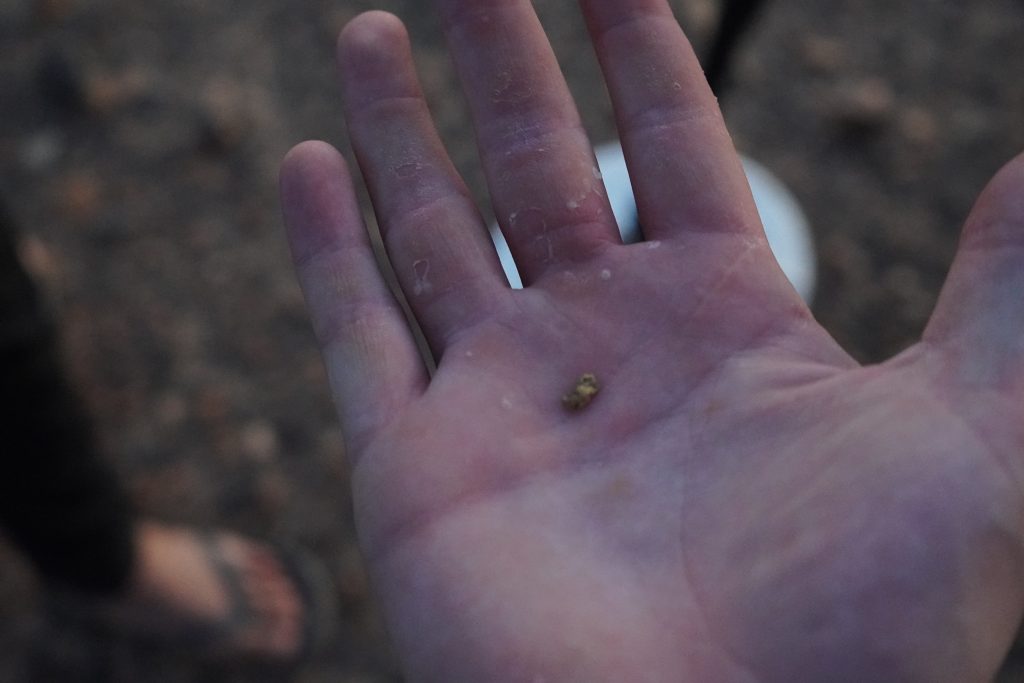
Iron (Fe) is the backbone of modern industry, primarily because of its use in steel production. The versatility of iron makes it essential in the construction of infrastructure, vehicles, and machinery, contributing to economic growth worldwide. As the world industrializes and urbanizes, the demand for iron ore continues to rise.
Mauritania holds some of the largest iron ore deposits in Africa, particularly in the Zouérat region. The country’s iron ore industry has a long history, dating back to the 1950s, and today it is a key export commodity. The mining company Société Nationale Industrielle et Minière (SNIM) plays a major role in the extraction and export of iron ore from Mauritania, with the country ranking among the top iron producers on the continent.
Exploration for iron ore in Mauritania often involves extensive geophysical surveys, which help detect large iron ore deposits beneath the surface. Aerial surveys and magnetometric techniques are commonly used to identify magnetic anomalies that indicate the presence of iron ore. Once identified, the deposits are evaluated through core drilling to determine the quality and quantity of the ore. Iron ore mining in Mauritania is primarily carried out through open-pit methods. The ore is crushed and ground to separate it from unwanted material, and then undergoes processes such as magnetic separation to increase the iron concentration. The beneficiation process ensures that the extracted ore is ready for export or further refining into steel.
Iron ore remains one of the most significant contributors to Mauritania’s economy, and as demand for steel increases globally, Mauritania is poised to continue its role as a key supplier of this critical resource.
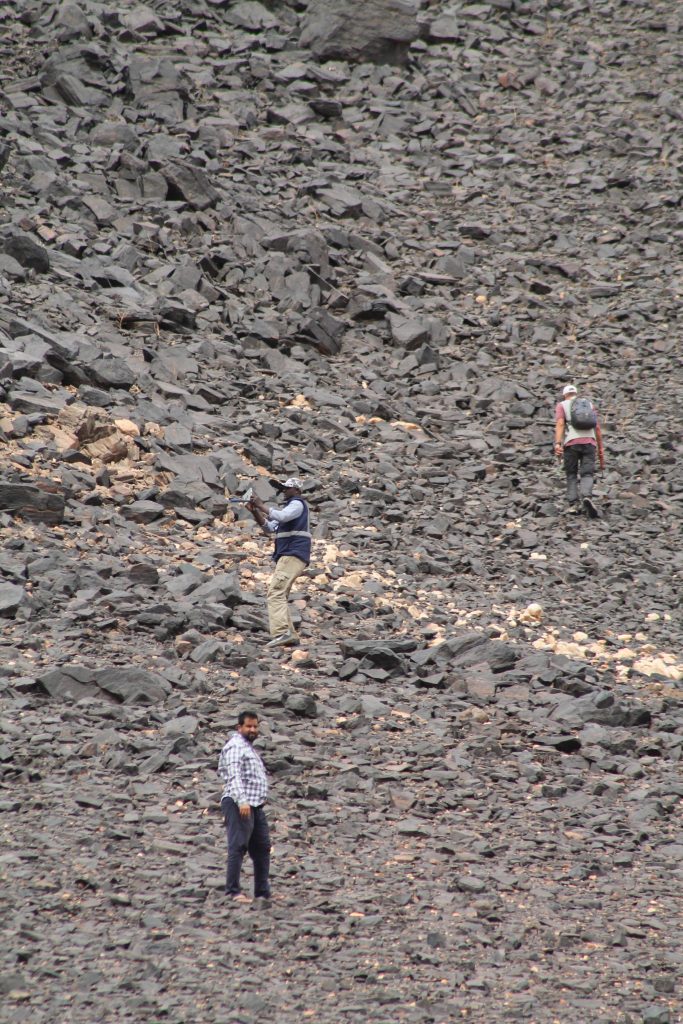
Copper (Cu) is one of the most widely used metals, known for its excellent electrical conductivity, malleability, and resistance to corrosion. It plays a crucial role in electrical wiring, telecommunications, and plumbing, making it essential in the construction and technology sectors. Additionally, copper is a key component in renewable energy systems, particularly in wind turbines, solar panels, and electric vehicle.
Mauritania has been drawing interest from mining companies for its copper deposits, as the global demand for the metal continues to rise. Exploration in Mauritania is focused on identifying large copper ore deposits, particularly in regions with favorable geological conditions. Copper mining in Mauritania is expected to grow in importance as the country seeks to diversify its mining sector beyond iron and gold.
Exploring for copper in Mauritania involves several stages, starting with geophysical mapping and surface exploration to identify copper-bearing zones. Once a target area is identified, drilling and core sampling are carried out to confirm the presence of economically viable copper deposits. The exploration process is critical for assessing the potential profitability of a mine.
Copper mining typically involves open-pit or underground methods, depending on the depth of the ore deposit. Once the copper ore is extracted, it is processed through crushing and grinding, followed by flotation, a technique used to concentrate the copper from the ore. The concentrated copper is then smelted and refined to produce pure copper metal, which is used in a wide variety of industrial applications.
Copper’s role in the transition to renewable energy and electric vehicles is driving up demand globally, and Mauritania’s copper reserves could play an important role in meeting that demand. As the world moves toward greener technologies, copper’s significance is only expected to grow.
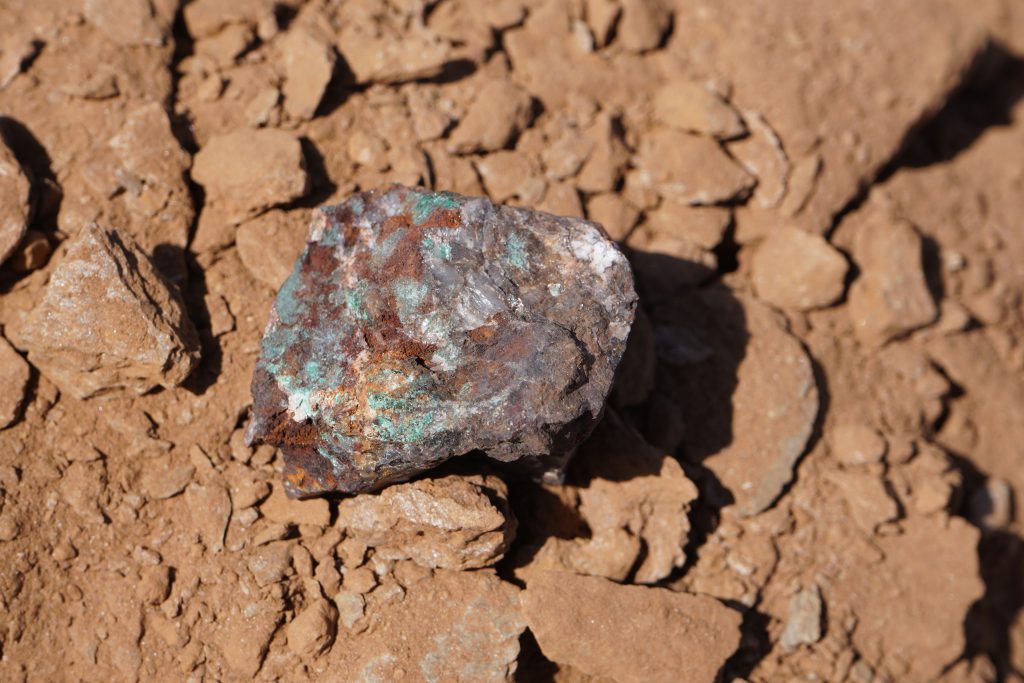
Manganese (Mn) is a key ingredient in the production of steel and is also used in the manufacturing of batteries and chemicals. Its ability to improve the toughness and hardness of steel makes it indispensable in the construction and manufacturing sectors. In addition, manganese is increasingly being used in the production of lithium-ion batteries, which are essential for electric vehicles and renewable energy storage systems.
Although manganese mining is less developed in Mauritania compared to other minerals like iron and gold, the country is believed to hold significant deposits. Exploration efforts are ongoing, with companies targeting regions that have shown promise in geophysical and geochemical surveys. As global demand for manganese continues to grow, particularly due to its role in battery technology, Mauritania’s potential manganese deposits are attracting attention from international mining firms.
Exploring for manganese involves various geological techniques, including soil sampling and drilling, to identify the presence of manganese ore. Manganese is typically found in shallow deposits, making it accessible through open-pit mining methods. Once extracted, the ore is processed to increase its purity and prepare it for industrial use. The processing involves washing, crushing, and separating the manganese from other elements in the ore, often through magnetic separation techniques.
With the rise in demand for electric vehicles and renewable energy, manganese has become increasingly important for modern industries. Mauritania, with its untapped reserves, could become a key supplier of this critical mineral in the future. The development of manganese mining in the country has the potential to significantly boost the economy while supporting the global transition to sustainable energy.
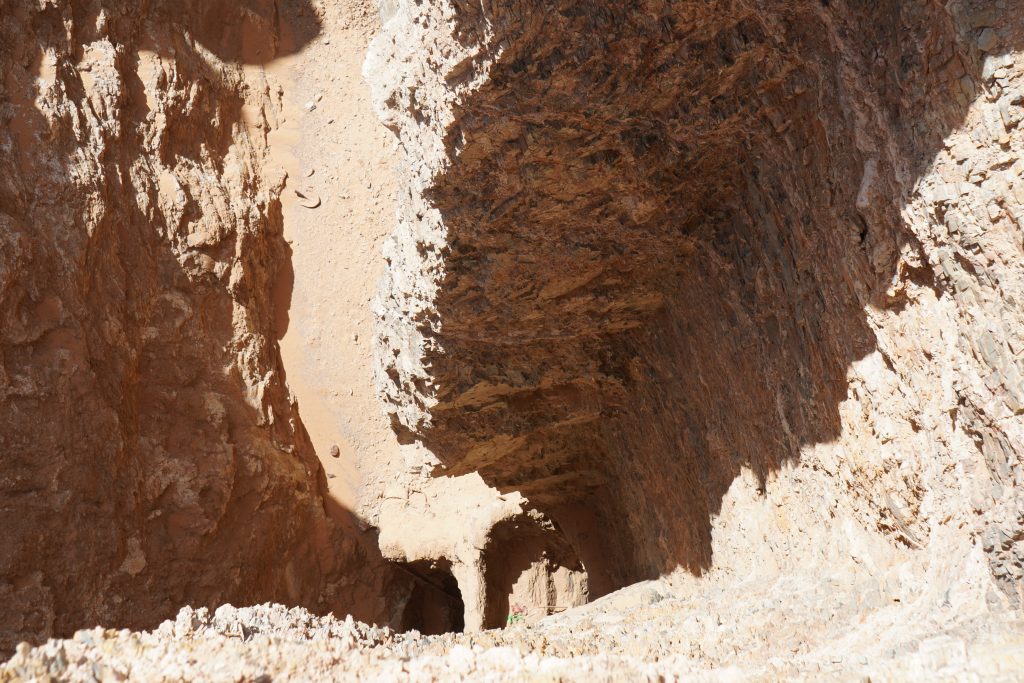
Nickel (Ni) is a versatile metal, essential for the production of stainless steel and various alloys. It is also increasingly in demand for its role in battery production, particularly for electric vehicles and renewable energy storage. Nickel’s high resistance to corrosion and oxidation makes it ideal for use in harsh environments, from chemical plants to marine applications.
In Mauritania, nickel deposits are currently being explored as part of the country’s broader effort to expand its mining sector. While still in the early stages of exploration, nickel has the potential to become a valuable resource for Mauritania, particularly as the global demand for nickel continues to rise due to its critical role in battery technology.
Nickel exploration in Mauritania typically involves a combination of geophysical techniques, such as electromagnetic surveys, to identify sulfide deposits where nickel is commonly found. Soil sampling and drilling are then used to assess the quality and quantity of the nickel ore in the identified areas.
Once viable deposits are confirmed, nickel mining can be carried out either through open-pit or underground mining methods, depending on the depth of the ore body. Nickel ore is then processed using techniques like smelting and refining to produce pure nickel metal. The refining process involves separating the nickel from other metals, such as cobalt, which can also be present in the ore.
As the demand for electric vehicles grows, nickel is becoming an increasingly valuable commodity. Mauritania’s nickel reserves, once fully explored and developed, could contribute to the global supply of this crucial metal, positioning the country as an important player in the global mining industry.
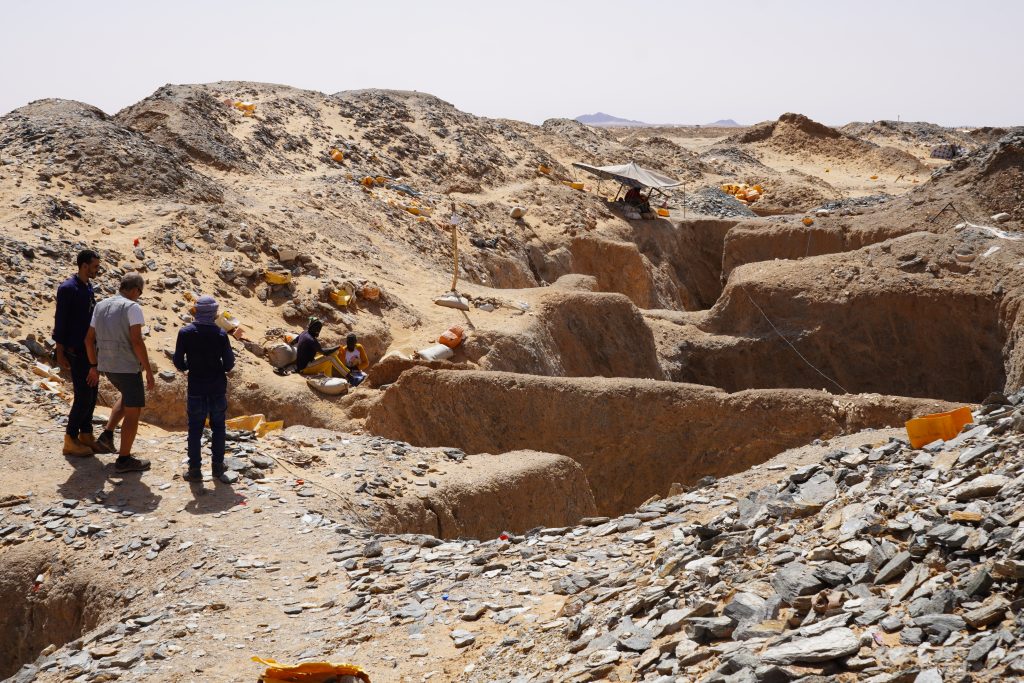
{content.wrapper.un.trim}